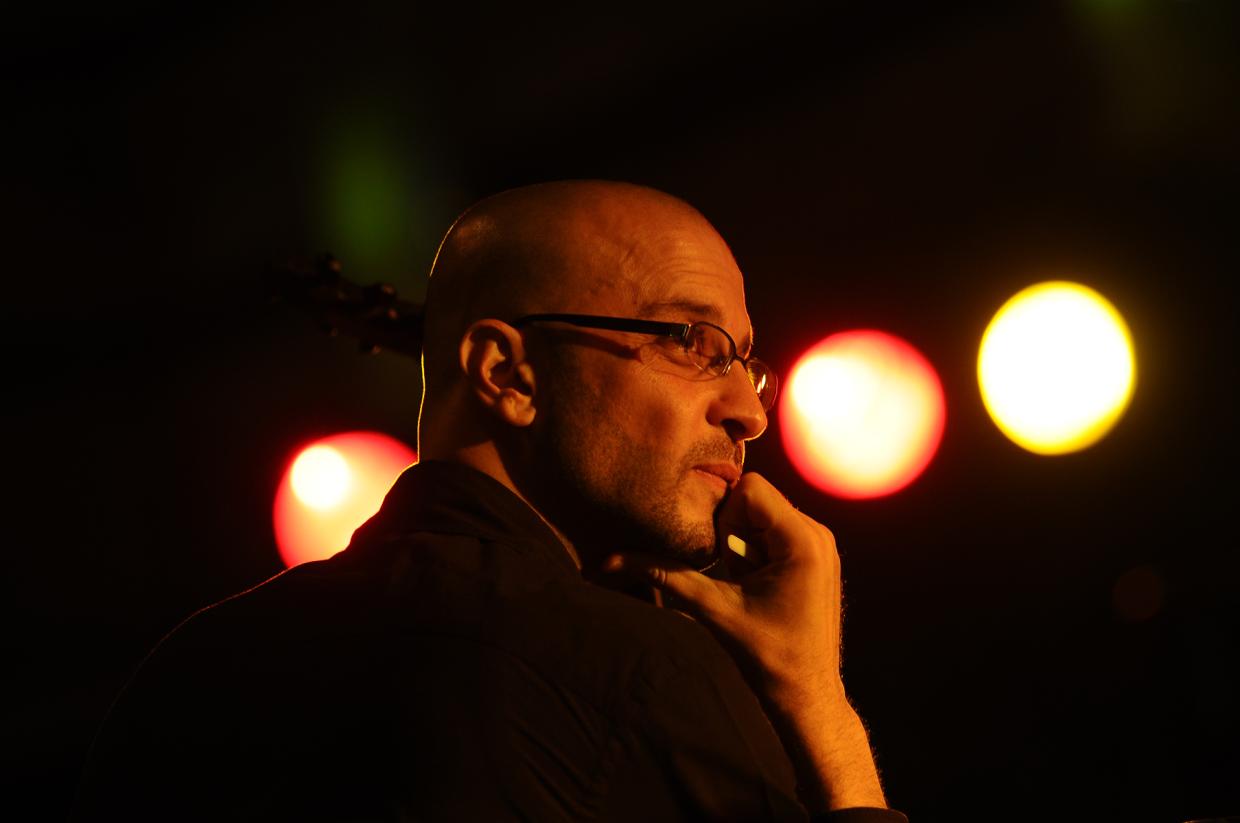An Interview with Issam Rafea

October 10th, 2015
Syrian musician and composer Issam Rafea brings his DIO Trio—featuring vocalist Dima Orsho; oud player Issam Rafea, and percussionist Omar al Musfi—to Nichols Concert Hall, 1490 Chicago Avenue, in downtown Evanston on Sunday, October 18 at 3 pm as part of the Music Institute of Chicago’s 2015–2016 faculty and guest artist series.
Rafea has a passion for infusing traditional Arab and Middle Eastern music with new compositional ideas and instrumentation. Winner of the 2010 Best Composer Award in the Dubai International Film Festival (Muhr Arab) for the film September Rain, Rafea was chair of the Arabic Music Department at the High Institute of Music in Damascus and the principal conductor of the Syrian National Orchestra for Arabic Music. He came to Illinois as an artist-in-residence and guest director of the NIU Middle Eastern Music Ensemble in DeKalb.
How did you first become interested in music?
I grew up in a family that had great taste in authentic Arabic music. So thanks to my parents, I was listening to really good Arabic music, in particular Tarab music. From the time I was very young, they realized I was very interested in music, so they started to support my interest and got instruments as they were able. Once I was in Damascus in the summer and my uncle had an oud [plucked string instrument—five pairs of strings, plus the lowest string, which remains single] at his house, so I took it and tried to play it. I was so excited to see what this instrument could do. I knew what it was but I didn’t know what it could do or how to play it. Within three months I could play it by myself, so I told my father I was playing and I wanted to buy one, and he agreed to it. A few days later he surprised me with my own oud. I tried to find music related to my background or what older players were doing. When I was 18 or 19, I decided to study at the High Institute of Music in Damascus.
For audience members who aren’t familiar with traditional Syrian music, what should they expect? How would you describe it?
All in all, I believe music is a universal language. Whether you are from Africa or the Middle East or America or Europe, you have a connection to music, you can feel the beat. Every type of music has its own unique sound. But there is interaction between audience and musicians, so even if you’ve never heard a certain kind of music, every person responds in his or her own way, the images it creates in your mind, the feelings it inspires. And the musicians like to hear the audience vocalize its responses. For our concert Sunday, DIO Trio will perform traditional music from the Arab world in addition to some original compositions of mine and one a cappella piece by a contemporary Syrian composer, Ghaswan Zerikly.
How does the experience of performing in the U.S. compare to performing in Syria?
In Syria they are familiar with the repertoire and the moods. But whether the audience is Syrian or non-Syrian, our goal is to provoke a response from the deepest part of your heart. So if we as musicians feel it, then the audience will feel it, too. You can’t speak what you feel maybe most of the time but the instruments and the voice can express whatever you want wherever you want.
You’ve been involved in some interesting collaborations, including with Damon Albarn of the British rock bands Blur and The Gorillaz. How did that come about?
The Gorillaz were planning to come to Syria for their new project and they were looking for someone to arrange some pieces for them. I was referred by a friend of mine, who told them about my role as conductor of the Syrian National Orchestra for Arab Music (SNOAM) and connected me with them. So I worked on a recording project with them arranging five tracks for SNOAM, and the song “White Flag” was selected for their Plastic Beach album. We performed at the Citadel [an 11th century fortified palace in ancient Damascus], then toured Australia, New Zealand, Hong Kong, the UK several times, and most of Europe. It was an amazing collaboration.
What’s coming up for you?
I’m finalizing a new album of work with an improvisational inspiration that I shared with visual artist Kevork Mourad, a Syrian artist who is now based in New York. I got a grant from The Space in the UK. I hope we’ll be ready to release it in a few weeks.

